Exposure to different cultures has definitely changed my views on acceptance, tolerance, diplomacy and perseverance.
Before moving abroad, I had few opportunities to immerse myself in different cultures, other than during vacations overseas. When I moved to Aberdeen, Scotland, I was in awe of Scottish nature, history, cuisine and local people’s pride in their heritage. As a Lithuanian student in Scotland, eager to establish a social circle in my new home, I found myself volunteering for a not-for-profit hospitality exchange organization. I organized several events where other volunteers like myself could share a piece of their culture, whether in the form of food, music, dance, or ideas. During one of these events, I met my Turkish husband who was living in Norway at that time. These exchanges encouraged and motivated me to create free online content where I taught the Lithuanian language and shared the culture.
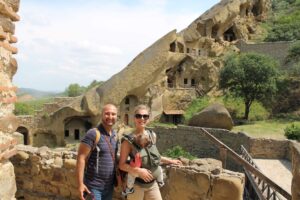 A year after I had met my husband, I moved to Norway to find out that he was soon leaving for a 6-month assignment in Aberdeen. During our long-distance relationship, I was able to settle in, learn the Norwegian language and find a job. Norway is known to be one of the best countries for work and life balance. Outside of work, I continued preparing Lithuanian content and enjoyed the social life and travels. I got to see the beautiful landscape of the Norwegian fjords, mesmerizing northern lights and charming small-town communities. Ut på tur, aldri sur! (On a hike – never gripe). Det finnes ikke dårlig vær, bare dårlige klær (There is no bad weather, only bad clothes). These were the expressions I kept hearing, and over time I learned to appreciate them and enjoy the outdoor lifestyle.
A year after I had met my husband, I moved to Norway to find out that he was soon leaving for a 6-month assignment in Aberdeen. During our long-distance relationship, I was able to settle in, learn the Norwegian language and find a job. Norway is known to be one of the best countries for work and life balance. Outside of work, I continued preparing Lithuanian content and enjoyed the social life and travels. I got to see the beautiful landscape of the Norwegian fjords, mesmerizing northern lights and charming small-town communities. Ut på tur, aldri sur! (On a hike – never gripe). Det finnes ikke dårlig vær, bare dårlige klær (There is no bad weather, only bad clothes). These were the expressions I kept hearing, and over time I learned to appreciate them and enjoy the outdoor lifestyle.
After experiencing the Nordic climate, we did not think twice about the opportunity to move to Brunei. Although camp life was not very different from what we were used to, it took considerable effort to adapt to local cultural and communication norms outside the camp. Even though I was already familiar with the local religion as my in-laws were Muslims, it was the first time in my life I lived in a predominantly Muslim country. In Brunei, I became aware of how expats contributed much to the community and how important volunteering was; not only to help the community we lived in, but also for personal development. I had a chance to help with the local club’s IT needs and to give Pilates classes to the expat community. In addition to all these experiences, we also welcomed our daughter Nida to the family.
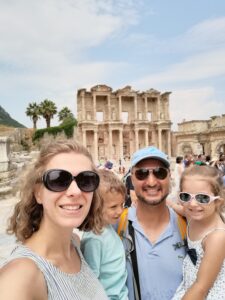 My husband’s next assignment in Iraq on a rotation basis gave us an opportunity to live in Istanbul, Turkey, where his extended family lived. We had a chance to travel around Turkey and other Mediterranean countries, and I had a chance to practice my Turkish. While in Istanbul I gave birth to our son Aras and continued my journey towards becoming a certified Pilates instructor. It was also important for me to teach our kids my own mother tongue as they were naturally exposed to the Turkish language. With fellow Lithuanians in Istanbul, we started the first not-for-profit Lithuanian language school called “Gilė”. We kept the Lithuanian community active by organizing events and activities for families. It was very fulfilling to see our kids understanding and responding in two different languages.
My husband’s next assignment in Iraq on a rotation basis gave us an opportunity to live in Istanbul, Turkey, where his extended family lived. We had a chance to travel around Turkey and other Mediterranean countries, and I had a chance to practice my Turkish. While in Istanbul I gave birth to our son Aras and continued my journey towards becoming a certified Pilates instructor. It was also important for me to teach our kids my own mother tongue as they were naturally exposed to the Turkish language. With fellow Lithuanians in Istanbul, we started the first not-for-profit Lithuanian language school called “Gilė”. We kept the Lithuanian community active by organizing events and activities for families. It was very fulfilling to see our kids understanding and responding in two different languages.
Australia was already on our travel bucket list when my husband learned that his next assignment would be in Perth. Relocating during the holiday season allowed the kids to be occupied with a variety of activities around the city and shake off any homesickness. It is amazing how fast the kids picked up English and now speak all three languages: Lithuanian, Turkish and English. Through Shell’s Partner Development Program I was able to complete my comprehensive Pilates certification and start working as a Pilates instructor. Giving back to the community is still a big part of my daily life as I volunteer in the first not-for-profit Perth Lithuanian School “Baltu Salele” as a teacher and an executive board member. Although due to Covid-19, we’ve not had a chance to visit our family back in Europe yet, we used the vacation time to explore Western Australia.
Despite the fact that moving countries every few years can be challenging, these experiences have changed my attitude to the environment that I live in. I feel that I have become more tolerant, understanding, inclusive and caring over the years. Encountering diverse groups of people and situations has led to self-reflection and personal growth. The diverse groups of people I met and learnt from and the different situations I have dealt with have provided me with the tools for self-reflection and personal growth.
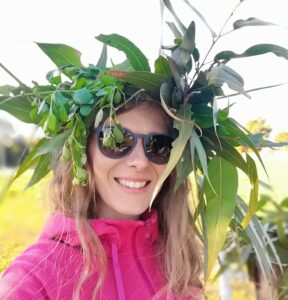 Kristina Tamosauskaite is a Lithuanian expat who has lived in five countries so far. She currently lives in Perth with her husband and two kids where she is also a Pilates instructor and a volunteer at a local Lithuanian language school.
Kristina Tamosauskaite is a Lithuanian expat who has lived in five countries so far. She currently lives in Perth with her husband and two kids where she is also a Pilates instructor and a volunteer at a local Lithuanian language school.
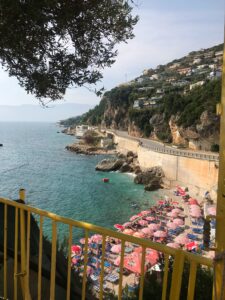 It has been over six months that I, along with my husband and daughter, arrived on your grounds from the Netherlands. ‘Let’s celebrate this moment with a day out tomorrow’, my 17-year-old suggested, while we were meeting with our new Albanian friends. They laughed. ‘The whole of Albania will celebrate it with you, as tomorrow is Summer Day!’, they said. What a treat, that in this country, summer starts on the 15 of March!
It has been over six months that I, along with my husband and daughter, arrived on your grounds from the Netherlands. ‘Let’s celebrate this moment with a day out tomorrow’, my 17-year-old suggested, while we were meeting with our new Albanian friends. They laughed. ‘The whole of Albania will celebrate it with you, as tomorrow is Summer Day!’, they said. What a treat, that in this country, summer starts on the 15 of March!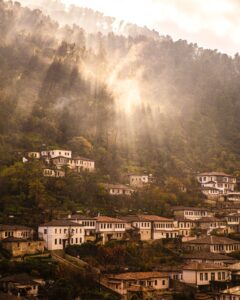 Dear Albania, I see that you have a great urge to catch up with countries that did not go through 45 years of communism. But please let this not make you feel insecure about yourself. You have no idea how special you are! Remnants and reminders of Illyrian, Greek, Roman, Ottoman and Communist times are scattered all over this country, like different threads on a loom. The stories about these times are interesting, fascinating and a lesson in many ways!
Dear Albania, I see that you have a great urge to catch up with countries that did not go through 45 years of communism. But please let this not make you feel insecure about yourself. You have no idea how special you are! Remnants and reminders of Illyrian, Greek, Roman, Ottoman and Communist times are scattered all over this country, like different threads on a loom. The stories about these times are interesting, fascinating and a lesson in many ways!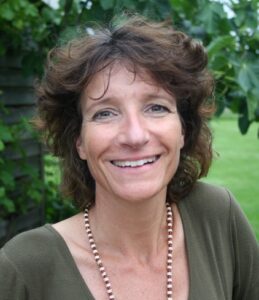 Janneke Frens-Geurts is a psychologist and an expat in Albania. Since September 2020, she has been living with her husband and one of their daughters in Tirana.
Janneke Frens-Geurts is a psychologist and an expat in Albania. Since September 2020, she has been living with her husband and one of their daughters in Tirana.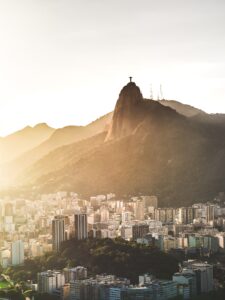
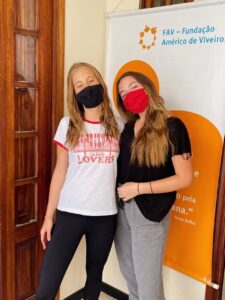
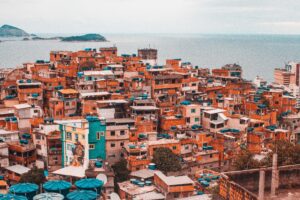
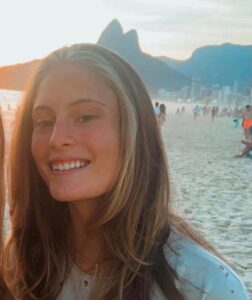 Luana Bogaert is a Belgian-Brazilian national who lives in the ‘Cidade Maravilhosa’ – Rio de Janeiro. She is now in her Junior year of high school and looks forward to possibly studying political sciences abroad. Outside school, Luana enjoys surfing and playing soccer. Amidst the pandemic she began a charity project, ‘Pintando o 7’, to help less fortunate children restore their self-initiative.
Luana Bogaert is a Belgian-Brazilian national who lives in the ‘Cidade Maravilhosa’ – Rio de Janeiro. She is now in her Junior year of high school and looks forward to possibly studying political sciences abroad. Outside school, Luana enjoys surfing and playing soccer. Amidst the pandemic she began a charity project, ‘Pintando o 7’, to help less fortunate children restore their self-initiative.